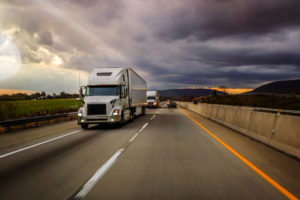By Jesus Diaz, Fast Company
When Don Burnette founded Kodiak in 2018, an old trucking idiom was on repeat in his mind: “If the wheels ain’t turnin’, you ain’t earnin’.” That mantra fueled Burnette as he set out to find potential partners when building his autonomous-trucking company. He and his team wanted to design a commercial-ready product from the start, and not waste time with science experiments.
“We worked closely with our partners to understand their requirements and how they run their fleets,” he says. “One message that really stood out to me was that in trucking, every minute a truck is down matters.” That remit became the driving force behind Kodiak’s SensorPod, which won a 2023 Innovation by Design Award in the Automotive category.
Kodiak’s latest generation of SensorPods replace a truck’s stock side-view mirrors with a tidy package of all the sensors an autonomous vehicle requires to understand the world around it. The SensorPods are pre-calibrated and pre-built, and connect to the company’s Kodiak Driver system like Lego bricks.
Each unit houses all the necessary autonomous vehicle sensors, including one Hesai LiDAR (laser scanners that can see far away across any weather conditions), two ZF Full-Range 4D radars (which is designed to detect the orientation, distance, speed, and height of objects around the truck), and three optical cameras.
Burnette says a big part of designing a robust and easy-to-maintain autonomous-driving system was figuring out how to service the sensors while out on the road when a specialized engineer would likely not be readily available. Kodiak designed the SensorPods to be modular; mechanics can swap them out without any specialized training or equipment, allowing for easy and fast service at any time and any location, even out on the open road.
Kodiak plans to launch its first fully autonomous truck in 2024 and to incorporate its technology into third-party fleets by 2025. Burnette believes that by the end of this decade, autonomous trucks will be commonplace on American highways, carrying freight safely and efficiently without a driver.
That doesn’t mean the immediate end for truckers. Burnette says the company is planning to leave the difficult work of local driving to trained, experienced humans. Kodiak’s objective is to improve the technology for long-haul routes. He believes that it still could be decades before you see driverless trucks backing up to your local grocery store. But with the global trucking industry grappling with increasing driver shortages and safety concerns, the idea of having reliable, automated, and safe long-haul road transportation seems like an appealing one for everyone, including the truckers themselves.
This story is part of Fast Company’s 2023 Innovation by Design Awards. Explore the full list of companies creating products, reimagining spaces, and working to design a better world. Read more about the methodology behind the selection process.

